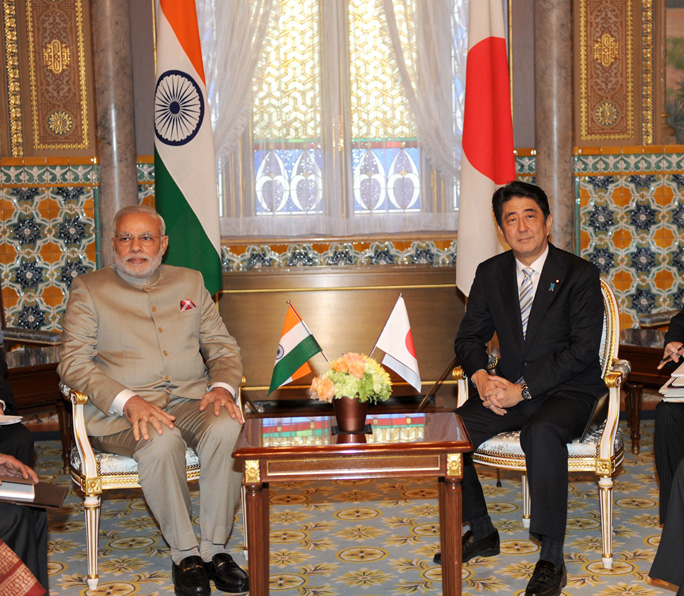
Ok, so I will be honest. I am seriously disturbed after reading this article on Japanese nuclear security arrangements. Yes, security arrangements that don’t exist!!!
Before I give you the gist of what is unsettling about Japan and its nuclear ‘security’ culture, let me tell you what ‘nuclear safety and security’ (NSS) entails. According to the IAEA:
- Nuclear safety is “the achievement of proper operating conditions, prevention of accidents and mitigation of accident consequences, resulting in protection of workers, the public and the environment from undue radiation hazards” and
- Nuclear security is “ the prevention and detection of, and response to, theft, sabotage, unauthorized access, illegal transfer or other malicious acts involving nuclear material, other radioactive substances or their associated facilities.”
While the nuclear safety arrangements are comprehensively adhered to at the global level, it is nuclear security that remains the weakest link in the global nuclear architecture.
According to the article here is what is alarming about Japanese nuclear security culture:
- 22 years in the making, Japan’s new nuclear fuel reprocessing facility (Rokkasho) will start operating in October this year to create fuel for future power plants. At full capacity once operational, it will be producing 8 metric tons of plutonium annually, which according to the authors, in theory is “enough to create an estimated 2,600 nuclear weapons, each with the explosive force of 20,000 tons of TNT.” And the best part is that Japan does not even need all this plutonium since it already has more than enough to meet its current and future energy needs!!
- Lax physical security arrangements around Japan’s nuclear installations are understandable given Japanese ‘pacifist culture’ and ‘privacy laws’: the law prevents contract guards to carry weapons and even after projected challenges to nuclear security post 9/11, the ‘absence of armed guards’ at one of Japanese research center (stocking plutonium and weapons-grade uranium) was justified by the Japanese officials because according to them there was “not a sufficient threat to justify armed police.” This is denial at its best!!
- It is ‘unconstitutional’ to conduct background security checks (including past criminal record; drug tests; credit checks etc.) for plant workers in Japan (whether they work in the secure area or are part time working inside the protected area) since the GOJ wants to “avoid raising what is a deeply sensitive privacy issue for Japanese society.” So basically you can put anything in the job application and the employers will just have to trust and not verify! Heaven, isn’t it? Let’s move to Japan.
- Japanese do not conduct ‘force-on-force’ exercises to deal with sabotage attempts or suicide attacks on their nuclear installations since they believe that such attacks are “improbable in their country,” suggesting a complete lack of internal and external threat assessment!!
Recognition of ‘existence and credibility of threat’ is the basic foundation of nuclear security culture, which is non-existent in Japan. I guess Jet Li has to make a movie staring Kim Jong-un to help Japanese understand that there is an absolute need to change the present nuclear security arrangements even if it means that laws should be amended to accommodate current and future threats. As Japan prepares to attend the Nuclear Security Summit[1] in The Hague on March 24-25, there is little hope that any change in Japanese nuclear security culture will come about in the near future. However, observations regarding its move towards a possible abandonment of postwar pacifism given its national security strategy have some merit. Maybe Japanese military and nuclear celibacy will not be ‘forever’.
Meanwhile, it gives me immense comfort as a Pakistani to know that Pakistan as a nuclear weapons state is under no denial about the kind of security challenges it faces today, both internal and external. Though over the years there has been sustained criticism about Pakistan’s nuclear security arrangements from around the globe, the nuclear security establishment has undertaken extensive measures to develop a comprehensive nuclear security regime with highly trained force to ensure the physical protection of nuclear materials and nuclear facilities.
Cheers.
***
Image: Narendra Modi, Flickr
[1] NSS is a world summit that aims to prevent nuclear terrorism around the globe and it recognizes that nuclear terrorism is a serious threat to international security. It is commendable initiative launched by the U.S. leadership in 2010. The three themes of the Summit are: ‘reducing the amount of dangerous nuclear material in the world; improving the security of all nuclear material and radioactive sources and; improving international cooperation’.